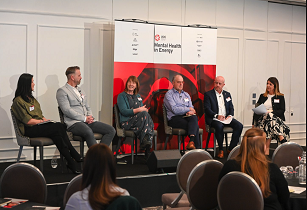Senior figures from the UK’s energy industry have pledged to establish a mental health charter aimed at improving the support available to workers
More than 150 leaders from the operator and supply chain communities from a globally diverse stage gathered with psychologists, mental health professionals, and third sector representatives to discuss how to address the growing mental health problem facing the offshore and onshore workforce.
The event, organised by the North Sea Chapter of the International Association of Drilling Contractors (IADC), marked a turning point in the industry's approach to mental health, following the publication of the IADC's report, ‘Changing Minds: Saving Lives’. The report calls for an urgent new approach to mental health and cites a recent study by the International SOS Foundation that found 40% of onshore and offshore workers experienced suicidal thoughts while on duty.
Discussions at the event centred around the best ways to achieve the necessary culture change, effective measurement of mental health support improvements, and sharing best practice. While the industry has taken steps to improve its approach to mental health, including the adoption of employee assistance programs and campaigns, the impact of these initiatives has been insufficient.
Darren Sutherland, chair of the IADC North Sea Chapter, stated, “As an industry, we have faced many challenges over the years and have developed solutions such as the safety case regime and time out for safety. These are programmes that started in the North Sea and are now globally accepted.
“We have an opportunity to act together and drive change in how we approach mental health. Workers are not looking for us to speak more. They are looking for us to take action. Let’s leave a legacy of change for the workforce behind us.
“Leaders are expected to set the pace, but they also need support. We need to ensure mental health and wellbeing are part of strategic planning. We are measured on EBITDA and our incident frequency rates, should we be measured on how well we are doing with supporting our people too? We talk about the need to walk the talk, but with mental health we need to walk the walk. It’s going to take leadership to make the change.”
A steering group has been tasked with developing an inclusive mental health charter which will be published at the end of May. The charter will aim to set minimum standards for mental health care provision, make the best use of existing mental health tools and lay out the principles for creating a safe psychological and caring work environment. Energy companies will be encouraged to sign up to it and share with staff to advance behavioral change.






